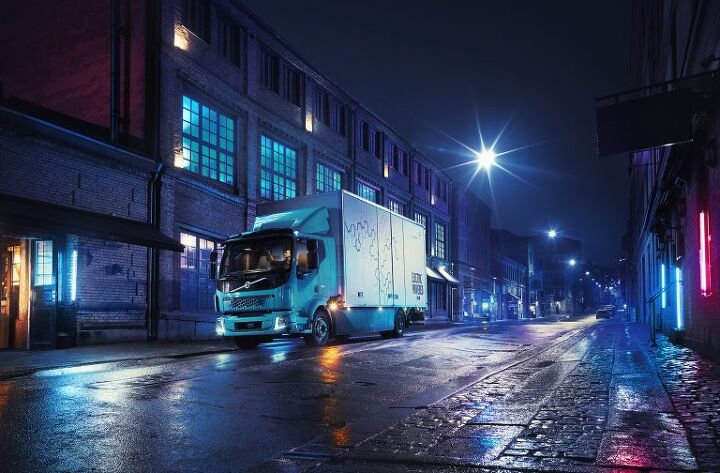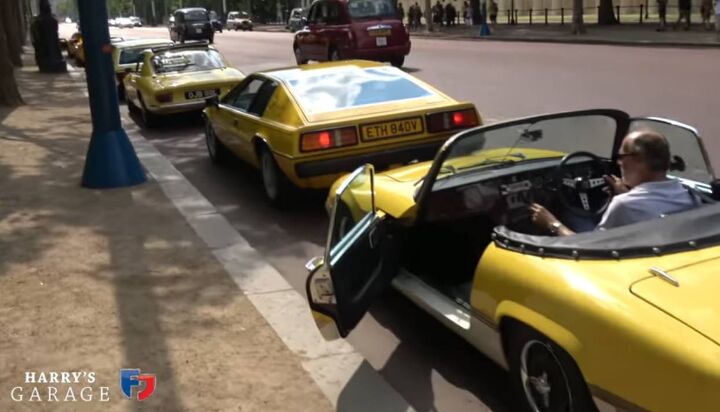#bans
Gas War: Russian Oil Now Under New Embargo
With the Russo-Ukrainian War ongoing, sanctions against Russia have become increasingly common. Western nations are casting a wide net in the hopes that bankrupting Russian businesses will destabilize the country and nullify its ability to wage war. The newest financial offensive is here and it’s a big one. As of December 5th, the European Union and G7 countries have decided to cap Russian oil in the hope of reducing Moscow's export revenues.
Gas War: California Finalizes Combustion Ban Plan
The California Air Resources Board (CARB) is supposed to vote on stricter rules that will ban the sale of new gasoline-powered cars by 2035 later today. But we already know what the results will be because the organization is about as mentally homogeneous as a eusocial insect colony and is strongly supported by the state government. So let’s cut to the chase and hear what California has to look forward to before seeing what kind of combustion bans are taking place in other parts of the world.
New York City Tragically Continues Crushing Motorcycles
Despite a change in leadership, New York City has continued to confiscate and destroy motorcycles officials have deemed illegal. Pioneered by ex-Mayor Bill de Blasio (formerly Warren Wilhelm Jr.), the practice has been continued by Eric Adams. In fact, the new mayor was so enthusiastic about the trend that the city held a press event where a bulldozer crushed over one-hundred bikes as he waved a checkered flag — effectively turning them all into garbage in a matter of seconds.
As a motorcycle enthusiast and recovering New Yorker myself, this story has been one your author has followed since the beginning as an excuse to professionally gripe about something personal. The city set out to confiscate dirt bikes and ATVs that are relatively common to see (and hear) zipping through traffic or cluttering sidewalks. De Blasio even made it one of his biggest traffic-enforcement initiatives in 2021, adding a bit of spectacle to the new vehicle bans. However, a cursory examination of the vehicles involved has shown a significant number of vehicles being destroyed are regular motorcycles that would have been legal under NYC law and all-electric scooters used by low-income commuters and restaurant delivery services.
Opinion: The NYC Dirt Bike Ban is Ridiculous
New York City Mayor Bill de Blasio made dirt bikes public enemy number one for traffic enforcement in 2021, citing road safety, cluttered sidewalks, unwanted noise, and air pollution as his primary reasoning. He’s even released videos where the city destroyed confiscated bikes to celebrate the initiative.
“Anyone out there who has an illegal dirt bike — don’t even think about it. Because the NYPD will find it and will crush it,” Mayor de Blasio proclaimed via Twitter earlier this month. “These dirt bikes do not belong in New York City. It’s against the law. Period. Dirt bikes are dangerous.”
The focus on two-wheeled transportation comes after city leadership announced there was a growing number of shootings and robberies tied to certain types of vehicles over the spring. Local outlets also covered an incident where a small child was struck by a dirt bike and placed into critical condition last July. But the actual qualifications for what NYC considers an “illegal dirt bike” are confusing. Numerous exemptions are made for electric scooters and about half of the bikes crushed in the mayor’s video are regular motorcycles. It seems nonsensical and only gets worse when you begin to ponder the consequences of banning some of the most affordable modes of transportation available to poor New Yorkers.
New York to Ban Sale of Gasoline Vehicles After 2035
New York Governor Kathy Hochul signed into law a bill that effectively makes the sale of new gasoline-powered automobiles illegal within the state after 2035. On Wednesday, the state’s new governor took the brave step of copying California in deciding that all new passenger cars and light-duty trucks be zero-emission models within the next 14 years. Though she saw it as a totally original strategy necessary for stopping the horrors of global warming, which we now call climate change.
It’s also not technically her plan, as the State Assembly voted on the bill months before she took office with all Democrats and three Republicans voting in favor. It later passed the Senate in another party-dependent vote aided by the state’s Democratic majority.
The End of Leaded Gasoline, Lessons to Remember
Prior to 1970, buying leaded gasoline in the United States was as normal as picking up a carton of eggs or relaxing in your asbestos-laden home. After 1970, the U.S. Congress had officially adopted the Clean Air Act created the Environmental Protection Agency (EPA), and the gradual phasing out of leaded fuel began. While many bemoaned the lackluster performance of the malaise-era automobiles that followed, the rules continued to inform how vehicle manufacturers operated on a global scale.
But leaded gasoline hung in there for longer than you might assume. Most Western nations (including the United States) didn’t totally phase out leaded gasoline intended for passenger vehicles until the 1990s. Central Asia took even longer and parts of the Middle East and Africa continued to offer lead additives well into the 2000s. However, the United Nations Environment Program announced that leaded gasoline had officially become extinct over the summer, with Algeria being the final country to deplete its now-banned supply.
Europe Proposes Banning Internal Combustion Cars By 2035
Last week, the European Union proposed banning the sale of all new internal combustion vehicles starting in 2035. With several member nations proposing restrictions in the coming years, EU leadership feels it can accelerate the timeline to force electric vehicles as the de facto mode of transportation. The European Commission has suggested making it illegal to sell gas or diesel-powered vehicles in 14 years, with aims to reduce CO2 emissions produced by automobiles by 55 percent (vs 2021 levels) by 2030.
But countries that still produce vehicles have expressed reservations about the scheduling. France absolutely agrees with mandating restrictions that would reduce greenhouse emissions. Though President Emmanuel Macron’s office has been pressing that hybrid vehicles would be able to do much of the heavy lifting and fears that an outright ban of internal combustion could hamstring the industry if conducted too early. Germany, which manufacturers more vehicles than other EU member nations, is of a similar mind.
A Dozen More States Virtue Signaling Over Vehicle Bans
Having noticed that Washington got a bit of publicity for vowing to ban all vehicles reliant on internal combustion after 2030, a dozen other American states decided it would be a good idea to reaffirm their own religious-like commitment to the environment by saying they too will be restricting your choice of automobiles by 2035.
The coalition of states — most of which don’t have a populace that’s dependent on automotive manufacturing for work — also formally asked the Biden administration to introduce standards that would obligate the United States to ban everything that emits smoke within the next fifteen years. Many activist groups are calling it a heroic act, though it’s difficult to recall any parables where the hero went around banning things and also represented an institutional power structure.
European Truck Manufacturers Ending ICE Production in 2040
An alliance of European truck manufacturers have pledged to stop selling vehicles that produce any emissions by 2040 — pushing up its previous target date by a full decade.
The group, which includes Daimler, Scania, Man, Volvo, Daf, Iveco, and Ford, have all signed a pledge to focus on developing hydrogen and battery technologies so that petroleum-derived propulsion can be phased out of the trucking industry.
Report: Japan May Ban Internal Combustion Vehicles Next Decade
The Japan Broadcasting Corporation, better known as NHK, reported that the island nation is considering banning new internal combustion engine cars by the mid-2030s this week. While we will continue to maintain that such an effort seems unrealistic when confronting the current realities of the market, Japan’s alleged plan offers a bit more leeway than proposals pitched in parts of Europe and North America. Nippon also finds itself in a better position in the preferred mixed approach of allowing mixed powertrains, which would allow the industry to continue production gasoline-driven hybrids.
For starters, the Asian country has a fairly comprehensive hydrogen fueling network thanks to its small size. It’s also in a position that would make nationwide EV charging more feasible than regions with plenty of wide-open spaces. But automakers aren’t making a peep on the issue, preferring to leave it up to regulators and the market.
NASCAR Bans Confederate Flag Entirely
NASCAR officially banned the Confederate flag on Wednesday. It will no longer be allowed to appear in regard to any of its corporate properties and fans won’t be able to bring any iconography that might stoke racial tensions or a suspect “yee-haw” from the crowd.
For years, the sport has made unsuccessful efforts to broaden its appeal, so this is hardly a surprise given everything else that’s going on. In fact, an unofficial initiative attempted to ban the flag back in 2015. It never went anywhere, though, and fans continued to arrive with the Stars and Bars in roughly the same numbers.
This time around, the corporate stance is much stronger, and with more public support behind it. Additionally, NASCAR has decided that racing teams will no longer be obligated to stand for the American flag (the supposedly better one) during the national anthem.
UK Parliament Committee Wants to Ban All Private Cars and Trucks by 2050
If you’re any kind of a car enthusiast, or you just think the personal automobile is a terrific transportation device, this news has got to be chilling. The cross-party Science and Technology Select Committee of Parliament has issued a report that says that if the United Kingdom is to reach its goal of becoming carbon neutral by 2050, private automobile and truck ownership must end.
Oh, and if you think your morally pure Tesla or some other EV is going to protect your privilege for personal transportation, no, the environmental Jacobins are coming for all privately operated motor vehicles.
U.K. Prepared to Ban Internal Combustion Engines by 2040
Britain will ban the sale of all new gasoline and diesel cars starting in 2040 as part of the government’s plan to reduce air pollution and copy France. The strategy, fronted by U.K. environment secretary Michael Gove and transport secretary Chris Grayling, would not only ban the future sale of internal combustion engines, but also provide a governmental incentive program similar to the United States’ Car Allowance Rebate System — colloquially known as “cash for clunkers.”
Because, as you know, nothing is better for the environment ( or the used car market) than populating scrapyards with fully functional automobiles and having factories across the globe expend extra energy to replace them.
“We can’t carry on with diesel and petrol cars,” Gove told British television audiences on Wednesday. “There is no alternative to embracing new technology.”
Germany Asks for Improbable Ban on Internal Combustion Engines by 2030
The German government has passed a resolution to ban the sale of internal combustion engines in the European Union by 2030.
Receiving bipartisan support in the German Bundesrat, the resolution calls on the EU Commission in Brussels to ensure only zero-emission passenger vehicles be approved for sale within the next fourteen years.
While the act has no direct legislative implications for Europe as a whole, German regulations could still undoubtedly influence and shape future automotive policies in the EU.
Reacting to the Predictable
Much ink has been spilled regarding predictive policing tactics as of late. Numerous law enforcement agencies all over the U.S. are relying on historical crime data, metropolitan topographical features, and other pieces of information to data model crimes yet to be committed.
We lack those pieces of high-tech gadgetry here at TTAC, yet I (and many others) predicted exactly what was about to happen in the comments of an incredibly well written and thoughtful story about a girl and her car.
That saddened me — and then I reached for my therapeutic ban hammer.





























Recent Comments